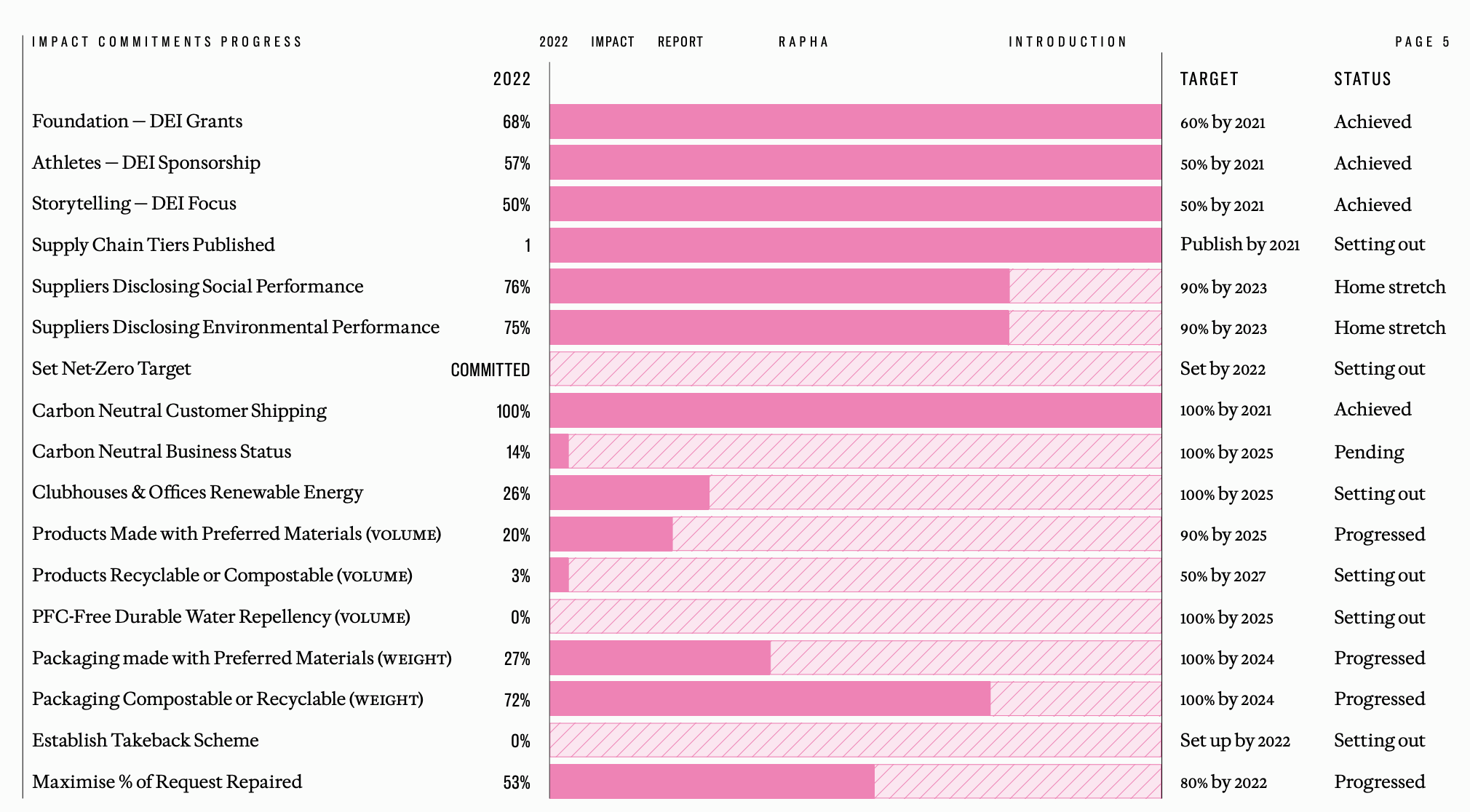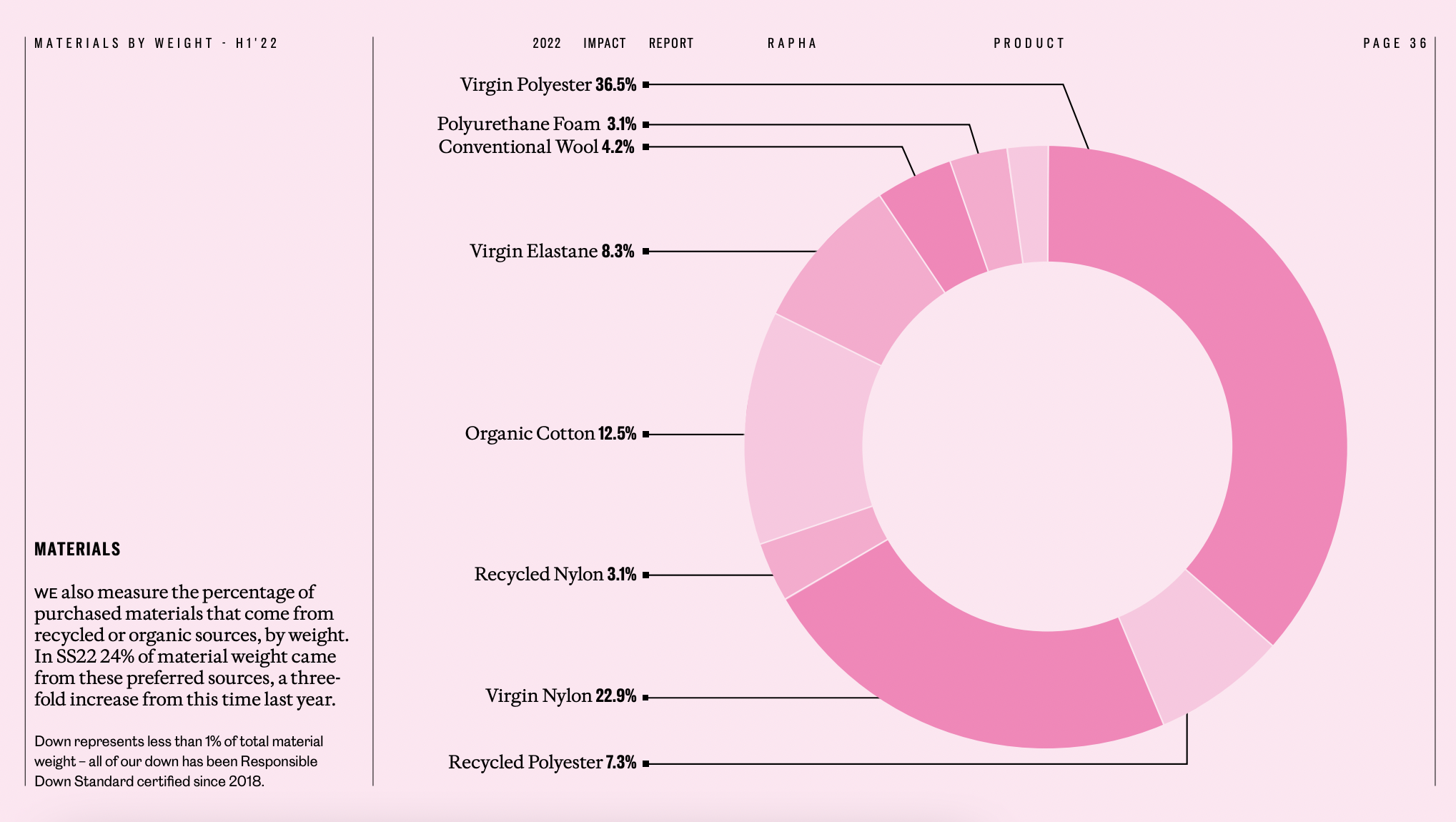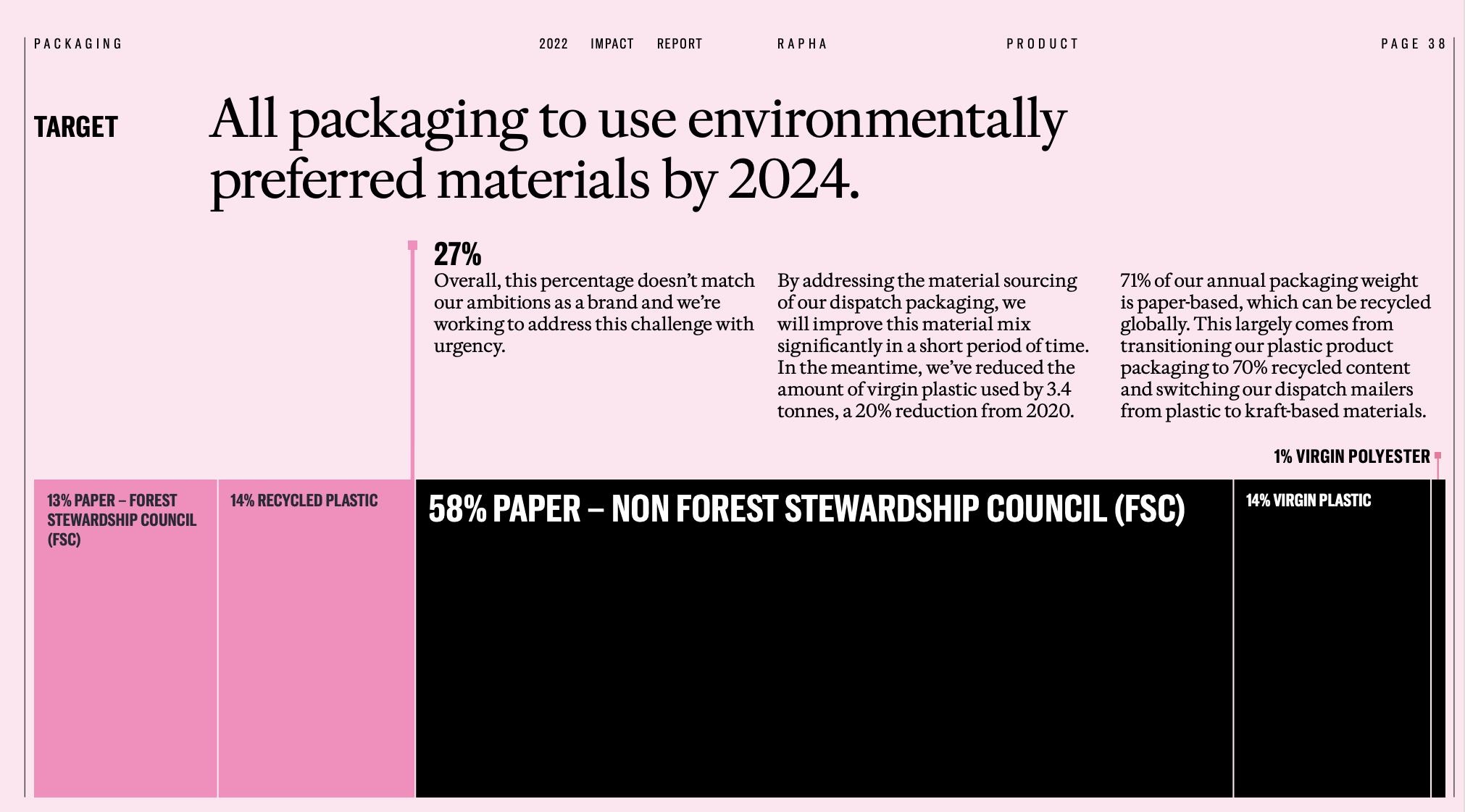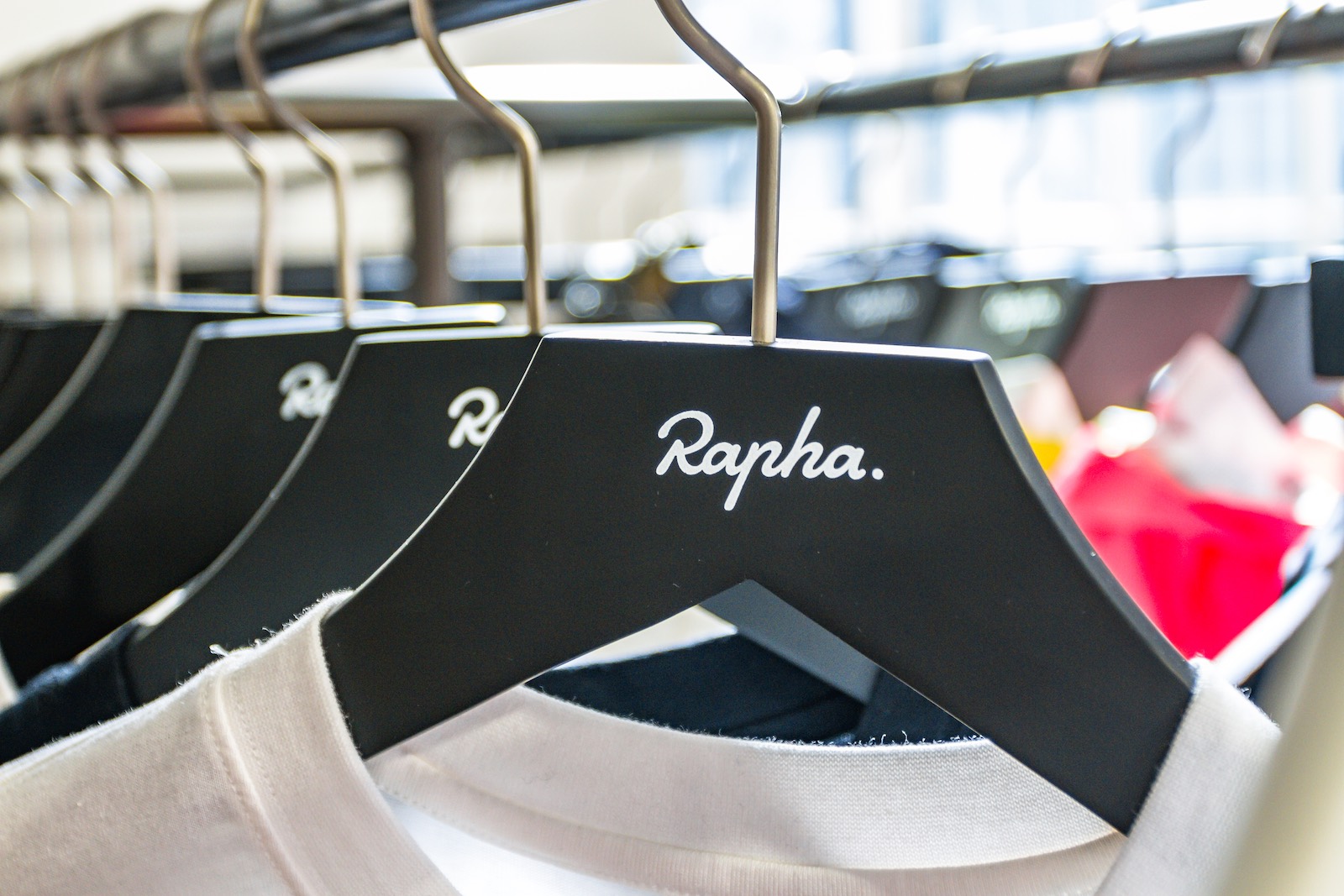Rapha announced it met a few planet- and people-friendly objectives in 2022 but says its work’s not done yet.
100% carbon-neutral shipping, 9,000 garments rescued from the landfill through free customer repairs, and 99% organic cotton use across its 2022 lineup — that’s three sustainability goals the London apparel company met in 2022.
But the brand’s got a longer list than that. And in December, it made that list public, along with more than a few particulars, in its “Impact Report.”

The report breaks down into three segments: People, Planet, and Product. In each one, Rapha performs a self-audit of its business practices relative to inclusive hiring practices, material choices, etc.
If you want to know what Rapha’s up to beneath the headlines, it’s worth digging into. For instance, the brand’s 99% organic cotton choice lineup-wide is impressive in and of itself — however, cotton accounts for only 12.5% of its total materials. On the other hand, oil-based, non-renewably sourced virgin polyester makes up 36.5%.

Other goals should help Rapha keep pace with the pack in the long run. The brand aims to cull PFCs from its entire DWR (durable water repellent) lineup by 2025 and rolls out its first PFC-free water-resistant products this year. That’s after major supplier Polartec dropped related chemical PFAS altogether in 2021, GORE-TEX rolled out its PFC-free DWR treatment, and Patagonia hopped on board.
Elsewhere, Rapha admitted it’s falling behind on delivering some objectives. It found that its packaging only includes 27% “environmentally preferred materials” as of now. But it wants that figure to be 100% by 2024, so current progress “doesn’t match [its] ambitions.”

And Rapha’s using the controversial Higg Index to measure working conditions in its supply chain. The introductory bar graph that outlines progress on critical goals shows the item “Suppliers Disclosing Social Performance” at 76%, with an intent of 90% by this year. Later, the report specifies Higg’s Facility Social & Labor Module and Facility & Environmental Module are measuring tools.
Higg suffered reputational damage in July when a New York Times investigation concluded that its sustainability audits enabled fast fashion and promoted plastic materials over natural fibers. The article did not address its vetting practices for labor and working conditions. Still, it did assert that “[o]ther studies incorporated into the Higg Index are sometimes relatively narrow in scope, raising questions about their broad, industrywide applicability.”
The full report is freely available on Rapha’s website.
